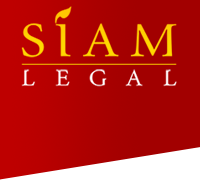Tax Exempt Once More: Rules On Taxation Of Foreign Income Into Thailand Revised Again

As of May 2025, the Thailand Revenue Department is preparing to draft legislation to revise the current tax collection on foreign income remitted to Thailand. The new rules will pertain to foreign income brought into Thailand and will help tax residents avoid having their foreign income taxed twice.
Thailand’s New Draft Legislation for Tax Collection
At the start of 2024, Revenue Department rules were amended, and stated that all foreign income earned after 2023 and remitted to the country will be subject to Thai income tax. Under the proposed guidelines of the new draft legislation, tax residents who earn income abroad will not be taxed on that income if they remit it to Thailand in the same year it was earned or the following year.
For example, if an individual earns income abroad in 2025 and remits it to Thailand in 2025 or 2026, it will not be subject to Thai income tax. However, if the individual waits until 2027 or later to remit that income, it would become taxable.
What is a Tax Resident in Thailand?
A tax resident in Thailand is an individual (whether a Thai national or a foreigner) who has remained in the country for 180 days or more within a calendar year. Once the individual becomes a tax resident, they must file a tax return on all assessable income earned in Thailand and assessable income earned abroad, then remitted to Thailand.
However, it is important to note that even non-tax residents must file a tax return if they receive income from sources in Thailand. So, for example, if an individual is living outside of Thailand full-time but earns income in Thailand from sources such as property rents or business profits, this income is considered taxable regardless of where the earner lives.
What is the Purpose of the New Draft Legislation for Tax Collection?
The new draft legislation aims to provide fairness and flexibility in the taxation of foreign income. By allowing a one-year grace period for remitting foreign income without tax consequences, the Revenue Department hopes to attract more remote workers, digital nomads, and retirees receiving pensions to the country to increase spending.
If the legislation is approved, the Revenue Department also hopes to encourage tax residents to remit their foreign income to Thailand within a reasonable timeframe. This will hopefully lead to increased local spending and investment. At the same time, the department intends to ensure that income remitted after that period will be subject to taxation to discourage tax residents from hoarding wealth abroad.
For individuals with foreign income, this proposed change to Thailand’s tax policy offers an opportunity to plan their finances more effectively, as it will reduce the immediate tax burden for those who remit their income within the specified timeframe and prevent double taxation.
The Government’s Efforts to Increase Tax Revenue
The draft legislation on foreign income will be a boon to taxpayers and improve investment in Thailand, but it will come at the cost of potential tax revenue. To address this, the Revenue Department is taking further steps to boost tax revenue in other areas and enforce accurate filing, payment, and registration across businesses.
Targeted Enforcement on Specific Types of Businesses
The Revenue Department has announced plans to tighten enforcement of tax collection from four types of businesses: restaurants, nightlife establishments, cash-based trading businesses, and pharmacies.
These business types have been identified as areas where tax compliance can be improved, and the Revenue Department aims to ensure accurate payments are made through regular surveys and audits.
Proposed New Value-Added Tax (VAT) Plan
Alongside targeted enforcement on specific types of businesses, the Revenue Department is in the process of studying a proposal from Finance Minister Pichai Chunhavajira to impose value-added tax (VAT) on businesses with annual revenue below 1,800,000 THB.
As of this writing, only businesses with annual revenue of 1,800,000 THB or more are required to register for VAT, but this new proposal aims to lower the registration threshold and boost government revenue.
However, since its announcement, the proposal has received negative feedback about its implementation, including from the Thai Wholesale and Retail Trade Association, which noted on the added burden it would put on small retailers already grappling with weak consumer spending and intense competition. These burdens are not limited to adjusting pricing structures but also extend to increased accounting tasks and monthly document submissions to the Revenue Department.
Professional Tax Consulting in Thailand
While the proposed amendments to foreign income taxation in Thailand are considered welcome news for individuals of all backgrounds, navigating the complexities of Thai tax law still remains a challenge, especially for foreigners with multiple income streams.
Because of this, it is advised to consult with a tax professional in Thailand to better understand the nuances of tax residency, remittance rules, and the requirements for compliance to avoid penalties and ensure accurate filings.
Siam Legal is a full-service law firm and visa consultancy in Thailand with over 20 years of experience in helping foreign and local clients with a wide range of legal matters, including tax-related issues.
Our team of skilled local and international tax advisors will help you understand your tax obligations as a tax resident of Thailand and determine which Double Tax Agreements, deductions, and credits you may be eligible for to legally minimize your tax liability.
For professional guidance with Thailand’s tax laws, do not hesitate to contact Siam Legal to put your tax worries to rest!
Category: Thailand Tax
About the Author (Author Profile)
Siam Legal is an international law firm with experienced lawyers, attorneys, and solicitors both in Thailand law and international law. This Thailand law firm offers comprehensive legal services in Thailand to both local and foreign clients for Litigation such as civil & criminal cases, labor disputes, commercial cases, divorce, adoption, extradition, fraud, and drug cases. Other legal expertise of the law firm varied in cases involving corporate law such as company registration & Thailand BOI, family law, property law, and private investigation.











